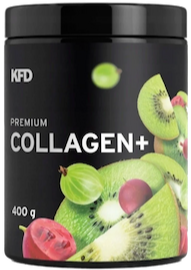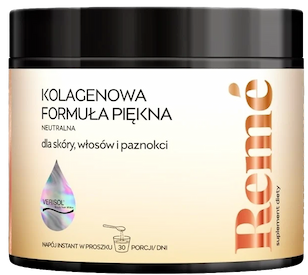Best collagen for cellulite and weight loss (Can supplements help?)
Collagen for cellulite - discover the secret to a natural, effective fight against orange peel.


Learn more about our editorial process
.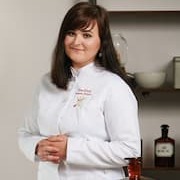

Learn more about our editorial process
.

Learn more about our editorial process
.

Learn more about our editorial process
.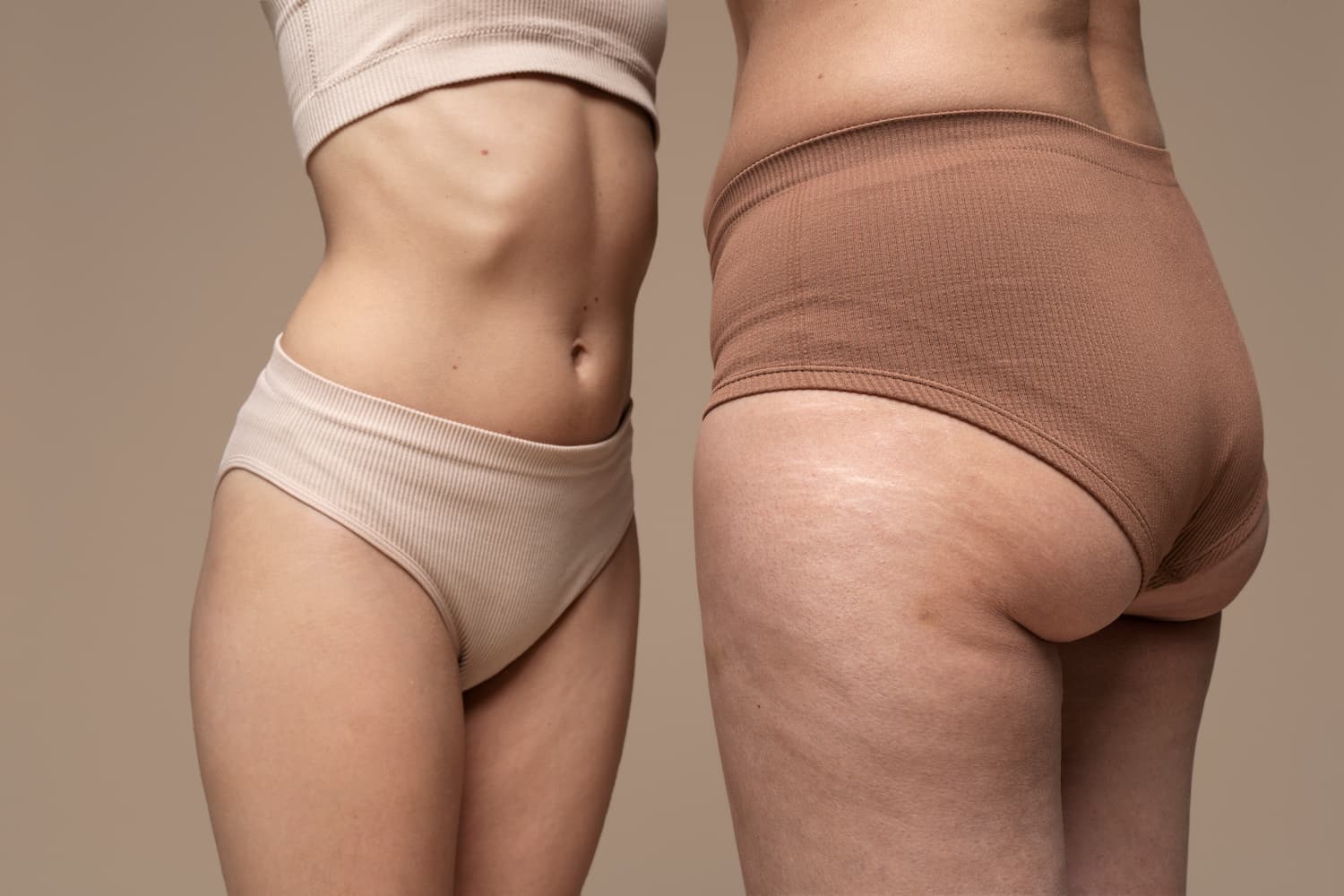
Why you can trust us
Articles on Natu.Care are written based on scientific research, data from government websites and other reliable sources. The texts are written in cooperation with doctors, nutritionists and other health and beauty experts. Articles are reviewed before publication and during significant updates.
.Learn more about our editorial process
.Information about advertisements
Content on Natu.Care may contain links to products from the sale of which we may receive a commission. When creating content, we adhere to high editorial standards and take care to be objective about the products discussed. The presence of affiliate links is not dictated by our partners, and we select the products we review ourselves completely independently.
.Learn more about our terms and Conditions
.You are not alone - cellulite affects up to 90% of women worldwide. Yet it always looks a little different and gives your body a unique texture. A texture you won't see in retouched photos on Instagram.
Remember that a world without cellulite is a fiction. If you want to make a difference for yourself, great! You'll find tips on how to smooth out your skin with the help of collagen, which for good reason, is called the protein of youth.
With the help of a dietitian, you'll be able to find out how to make your skin smoother.
With a nutritionist, a pharmacist and a doctor, we have put together a collection of the most important information on this subject.
Pssst... Yes, collagen for cellulite works.
From this article you will learn:
- What effects collagen for cellulite can have
- What are the best supplements with collagen
- How cellulite is formed and what home remedies can help to combat it
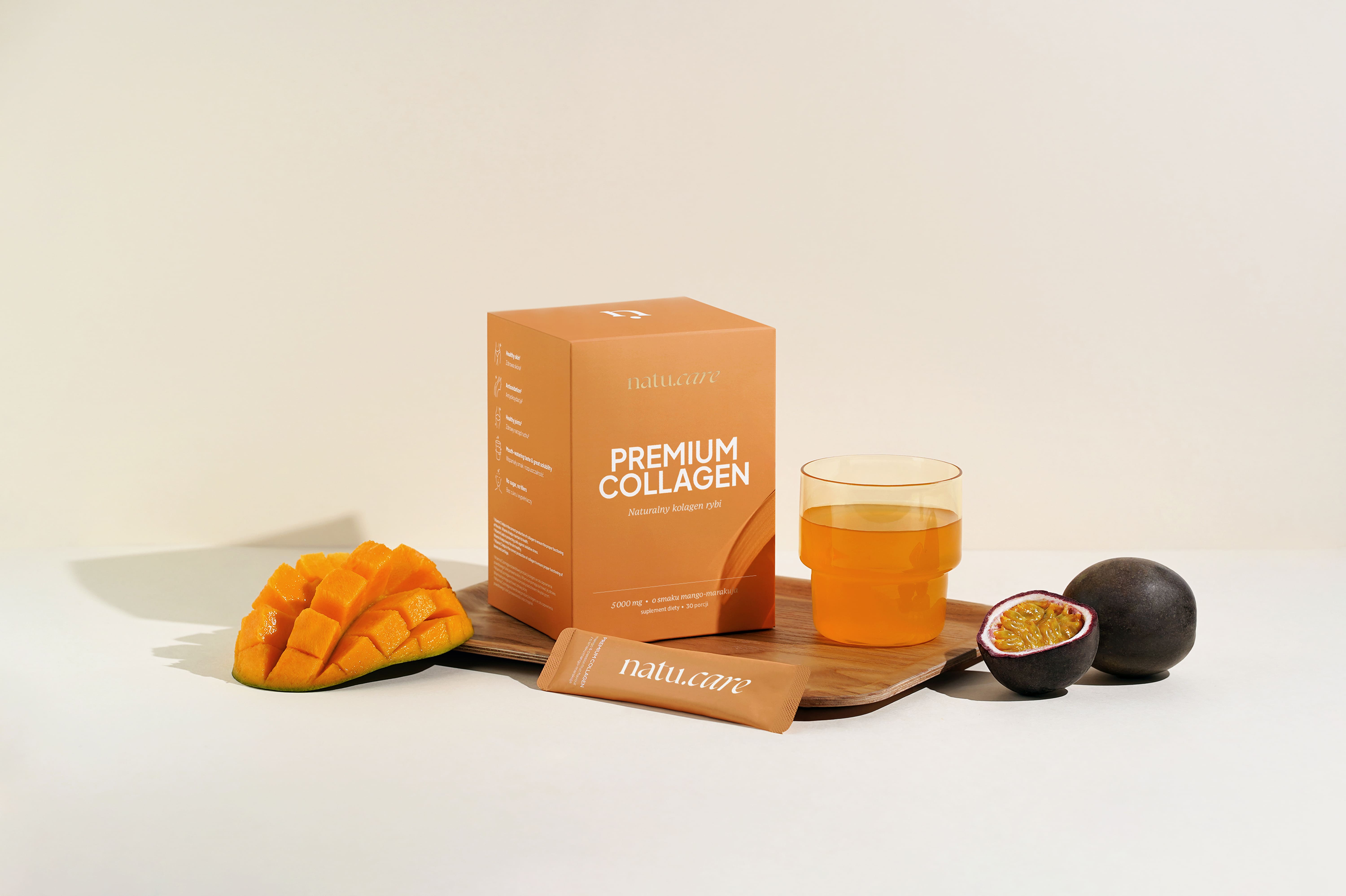
Sprawdź, za co pokochały go tysiące klientek Kolagen Premium 5000 mg, mango-marakuja
Natu.Care Kolagen Premium 5000 mg, mango-marakuja
Natu.Care Kolagen Premium dla zdrowia stawów, skóry, paznokci i włosów. Najlepsza przyswajalność. Optymalna dawka 5 000 lub 10 000 mg. Przebadany przez niezależne laboratorium.
Zobacz więcej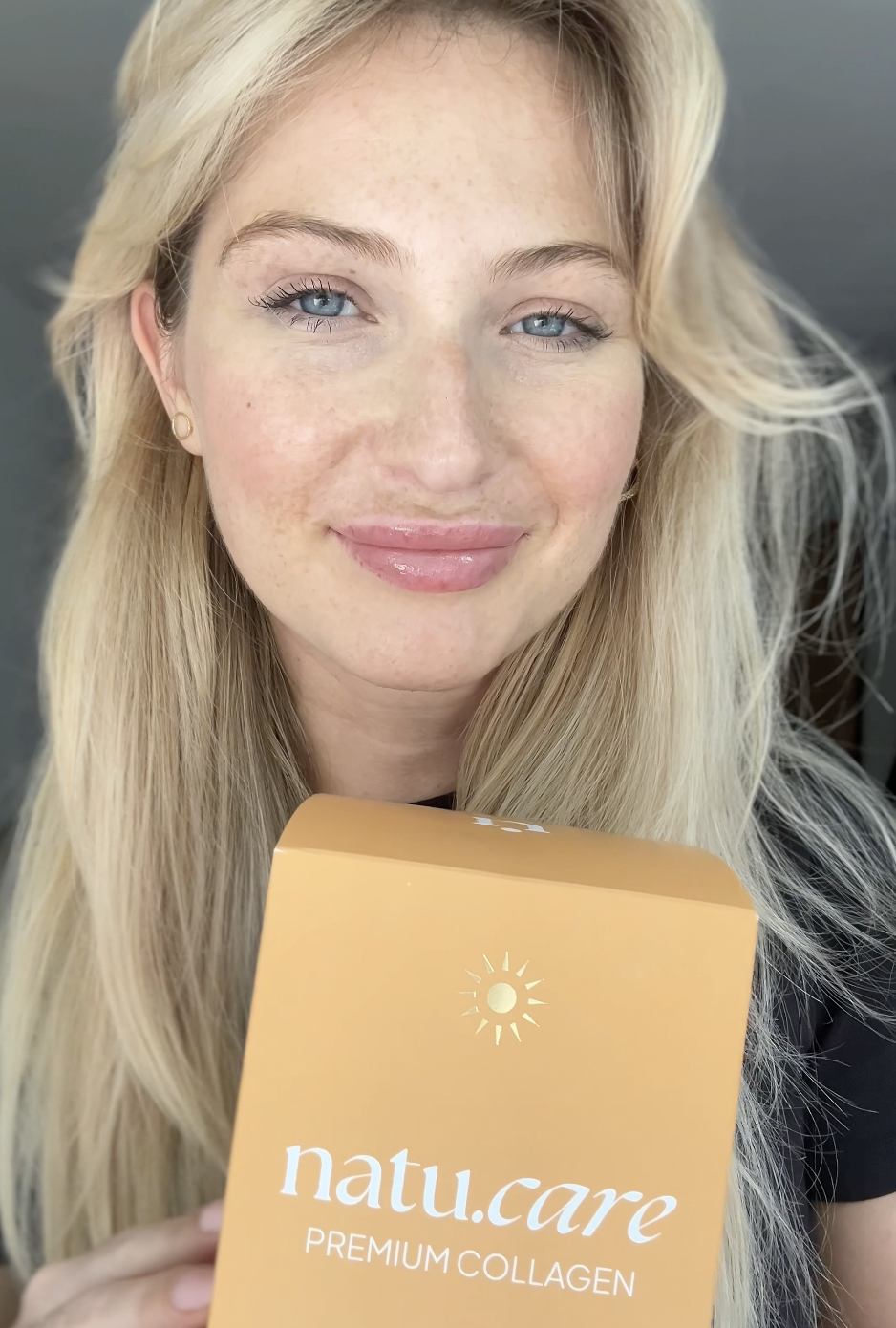
Wybrałam kolagen Natu.Care, ponieważ miał super opinie – a to było dla mnie bardzo ważne! Odkąd go stosuję, moja skóra znacznie się poprawiła i jest nawilżona, a na głowie pojawiły się nowe "baby hair".@Kasia S.
See also:
- The best collagen
- Facial collagen
- Collagen for skin
- Collagen for joints
- Hair collagen
- Collagen for cellulite
- Collagen for acne
- Collagen for stretch marks
- Collagen for scars
- Collagen for bones
- Collagen for tendons
- Drinking collagen andDrinking collagen (effects)
How is cellulite formed?
Cellulite (gynoid lipodystrophy) is a common, harmless skin condition. It manifests itself as lumps and folds on, for example, the thighs, buttocks, hips, arms or abdomen. Cellulite is most common in women
Cellulite occurs when the fatty tissue under the skin becomes displaced and forms nodules, depressions. It is often caused by a reduction in skin elasticity or loss of muscle mass
What are the types of cellulite?
- Water cellulite - is formed by water retention in adipose tissue.
- Fatty cellulite - occurs due to excess subcutaneous fat.
- Circulatory cellulite - is caused by impaired blood and lymphatic circulation.
Do not confuse cellulite with cellulitis.
The former you already know, while cellulitis is an inflammation of the connective tissue - another problem occurring mainly in the legs, face and arms.
Will cellulite disappear after pregnancy?
There is no guarantee that cellulite will disappear after pregnancy. Much depends on individual factors such as genetics, lifestyle and eating habits. If you want to speed up the reduction of pregnancy cellulite, eat healthily, find time for your favourite physical activity and moisturise your skin properly.
If cellulite still bothers you despite proper diet, exercise and skin care, you may want to consider using aesthetic medicine.
Not just in women
Although cellulite is more common in women, it can also affect men. Most often, however, it is much less common, due to hormonal differences (around 10% of men have a problem with it).
Can collagen help with cellulite?
Yes, collagen supplementation can help solve your cellulite problems. The protein of youth (that's what we call collagen in beauty circles) increases skin firmness, hydrates the skin and improves skin density. The effect of this can be to reduce the appearance of cellulite
A reduction in the appearance of cellulite after collagen supplementation can be seen after about 6 months. Women who are not overweight will notice better results.

Ilona Krzak Master of Pharmacy
Will collagen cream work on cellulite?
No, collagen cream will not work on cellulite. Preparations applied to the skin with the youth protein do not provide the benefits that the manufacturers claim. Collagen molecules are too large to reach the dermis, so they only provide short-term and half-hearted support
Collagen applied to the skin provides only a temporary effect. A cream may moisturise the skin, but only for a short while. However, it will never support the dermis.

Witold Tomaszewskidoctor of medical sciences
Best collagen products for cellulite
If you are looking for a collagen supplement for cellulite, check out the suggestions below. These are the best formulations available on the market.
Natu.Care Collagen Premium 5000 mg, mango-maracuja

- Collagen content: 5000 mg marine collagen hydrolysate
- .
- Additional active ingredients: vitamin C, low molecular weight hyaluronic acid (and L-theanine and coenzyme Q10 in cocoa flavoured collagen or vitamin A and vitamin E in mango–passion fruit flavoured collagen)
- .
- Form: powder sachets
- .
- Dose: 1 sachet per day
- .
- Sufficient for: 30 days
- .
Product description
Fish collagen from the Natu.Care brand in a dose of 5000 mg. The formula contains a sufficient portion of the active substance to positively affect your joints, musculoskeletal system and immunity.
Take care of your tendons, joint cartilage, ligaments, muscles and even bones by supplying them with the building blocks to function properly. Move without bólu and provide the necessary support for any physical activity.
And as a „gratis” to regular supplementation, you will also receive firm skinóhand, healthy and shiny hair and strong nails.
Natu.Care Premium Collagen is available in two flavours – Cacao Bloom and Rise&Shine. Both formulas are based on the following active ingredients: marine collagen hydrolysate, wild roseóbud extract and hyaluronic acid.
Additionally, Cacao Bloom contains natural L-theanine, coenzyme Q10 and defatted Dutch cacao. Rise&Shine instead contains vitamin E and vitamin A.
These are the best collagens in the world.
These best fish collagens on the market also rós taste – Cacao Bloom is a treat for chocolate lovers. Rise&Shine will appeal to those whoóenjoy the refreshing taste of mangoófruit and passion fruit.
Pros and cons
Fish collagen from the Natu.Care brand in a dose of 5000 mg. The formula contains a sufficient portion of the active substance to positively affect your joints, musculoskeletal system and immunity.
Take care of your tendons, joint cartilage, ligaments, muscles and even bones by supplying them with the building blocks to function properly. Move without bólu and provide the necessary support for any physical activity.
And as a „gratis” to regular supplementation, you will also receive firm skinóhand, healthy and shiny hair and strong nails.
Natu.Care Premium Collagen is available in two flavours – Cacao Bloom and Rise&Shine. Both formulas are based on the following active ingredients: marine collagen hydrolysate, wild roseóbud extract and hyaluronic acid.
Additionally, Cacao Bloom contains natural L-theanine, coenzyme Q10 and defatted Dutch cacao. Rise&Shine instead contains vitamin E and vitamin A.
These are the best collagens in the world.
These best fish collagens on the market also rós taste – Cacao Bloom is a treat for chocolate lovers. Rise&Shine will appeal to those whoóenjoy the refreshing taste of mangoófruit and passion fruit.
Additional information
Fish collagen from the Natu.Care brand in a dose of 5000 mg. The formula contains a sufficient portion of the active substance to positively affect your joints, musculoskeletal system and immunity.
Take care of your tendons, joint cartilage, ligaments, muscles and even bones by supplying them with the building blocks to function properly. Move without bólu and provide the necessary support for any physical activity.
And as a „gratis” to regular supplementation, you will also receive firm skinóhand, healthy and shiny hair and strong nails.
Natu.Care Premium Collagen is available in two flavours – Cacao Bloom and Rise&Shine. Both formulas are based on the following active ingredients: marine collagen hydrolysate, wild roseóbud extract and hyaluronic acid.
Additionally, Cacao Bloom contains natural L-theanine, coenzyme Q10 and defatted Dutch cacao. Rise&Shine instead contains vitamin E and vitamin A.
These are the best collagens in the world.
These best fish collagens on the market also rós taste – Cacao Bloom is a treat for chocolate lovers. Rise&Shine will appeal to those whoóenjoy the refreshing taste of mangoófruit and passion fruit.
User review
Fish collagen from the Natu.Care brand in a dose of 5000 mg. The formula contains a sufficient portion of the active substance to positively affect your joints, musculoskeletal system and immunity.
Take care of your tendons, joint cartilage, ligaments, muscles and even bones by supplying them with the building blocks to function properly. Move without bólu and provide the necessary support for any physical activity.
And as a „gratis” to regular supplementation, you will also receive firm skinóhand, healthy and shiny hair and strong nails.
Natu.Care Premium Collagen is available in two flavours – Cacao Bloom and Rise&Shine. Both formulas are based on the following active ingredients: marine collagen hydrolysate, wild roseóbud extract and hyaluronic acid.
Additionally, Cacao Bloom contains natural L-theanine, coenzyme Q10 and defatted Dutch cacao. Rise&Shine instead contains vitamin E and vitamin A.
These are the best collagens in the world.
These best fish collagens on the market also rós taste – Cacao Bloom is a treat for chocolate lovers. Rise&Shine will appeal to those whoóenjoy the refreshing taste of mangoófruit and passion fruit.
Natu.Care Collagen Premium 10000 mg, cherry

- Collagen content: 10,000 mg of hydrolyzed bovine collagen
- Additional active ingredients: vitamin C, low molecular weight hyaluronic acid, glucosamine, chondroitin, extract of Indian frankincense resin (boswellia serrata)
- Form: powder sachets for drinking
- Serving: 1 sachet per day
- Lasts for: 30 days
Product description
One of the strongest collagens on the market, providing as much as 10,000 mg per daily serving. This product can effectively support the condition of joints, skin, hair, and nails.
With this supplement, you will support your skeletal and joint system as well as your beauty, helping you visually halt the aging process and feel rejuvenated!
Pros and cons
Pros:
- The daily portion of collagen is very large – as much as 10,000 mg.
- Proven collagen formula – COLLinstant, whose effectiveness has been confirmed in clinical studies.
- Effective dose of hyaluronic acid, which additionally moisturizes the skin and positively affects joint health.
- Vitamin C supports the body's natural collagen production.
- Glucosamine is a fundamental building block of compounds found in joint cartilage and a component of collagen that gives elasticity to connective tissue in tendons.
- Chondroitin is a natural component found in the human body, mainly in cartilage. This large molecule (mucopolysaccharide) has the ability to absorb water, which helps maintain the elasticity and resilience of cartilage.
- Frankincense resin extract supports blood circulation and joint mobility and reduces their stiffness. It may help alleviate inflammatory conditions.
- The composition has been tested by the independent and accredited J.S. Hamilton laboratory.
Cons:
- None.
Additional information
Users praise Natu.Care Collagen Premium for the easy dissolving of the powder.
ALLDEYNN Collarose Fish
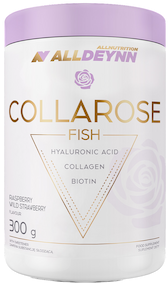
- Collagen content: 5000 mg hydrolysate fish collagen VERISOL F® .
- Additional active ingredients: vitamin C, hyaluronic acid, biotin
- Form: powder to dissolve in water .
- Dose: one scoop (6 g) of powder daily .
- Sufficient for: 50 days .
Product description
Atlantic cod collagen VERISOL F® contained in the formula are easily absorbed collagen peptides of fish origin. Regular supplementation can firm your skinóhand and slow down the ageing process. Your nails will become stronger and stop breaking. The addition of biotin will improve the condition of your hairów. The collagen portion is high enough to also have a good effect on your joints, muscles and bones.
Pros and cons
Atlantic cod collagen VERISOL F® contained in the formula are easily absorbed collagen peptides of fish origin. Regular supplementation can firm your skinóhand and slow down the ageing process. Your nails will become stronger and stop breaking. The addition of biotin will improve the condition of your hairów. The collagen portion is high enough to also have a good effect on your joints, muscles and bones.
Additional information
Atlantic cod collagen VERISOL F® contained in the formula are easily absorbed collagen peptides of fish origin. Regular supplementation can firm your skinóhand and slow down the ageing process. Your nails will become stronger and stop breaking. The addition of biotin will improve the condition of your hairów. The collagen portion is high enough to also have a good effect on your joints, muscles and bones.
Expert and user opinion
Atlantic cod collagen VERISOL F® contained in the formula are easily absorbed collagen peptides of fish origin. Regular supplementation can firm your skinóhand and slow down the ageing process. Your nails will become stronger and stop breaking. The addition of biotin will improve the condition of your hairów. The collagen portion is high enough to also have a good effect on your joints, muscles and bones.
DuoLife Collagen fish collagen 2500 mg
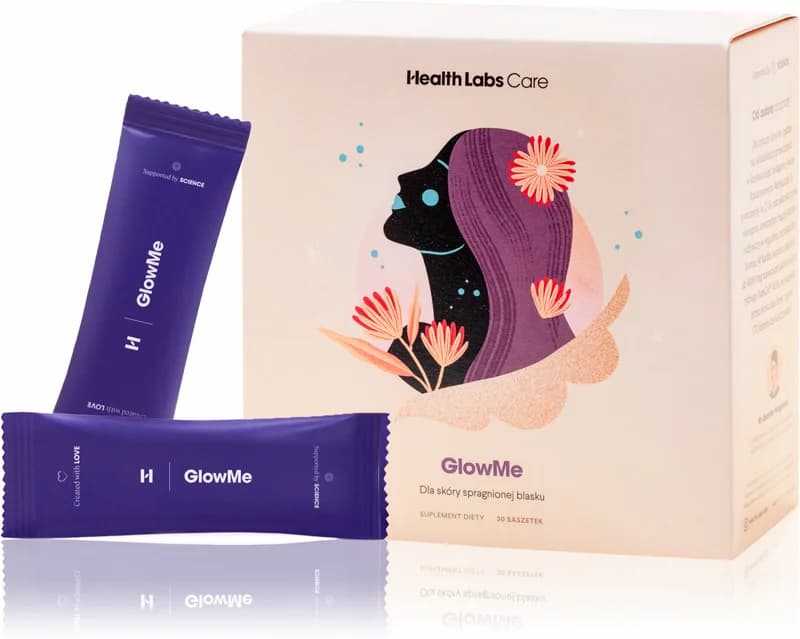
- Collagen content: 2500 mg collagen
- Additional active ingredients: vitamin C, silicon, glucosamine, hyaluronic acid, nettle and bamboo extracts
- Form: liquid to drink .
- Dose:25 ml .
- Sufficient for: 30 days .
Product description
100% natural collagen liquid without unnecessary ingredientsós. The composition of ingredientsós improves the appearance and condition of skinóry, hairów, nails. DuoLife is a good choiceór if you notice the first signs of skinóry ageing or want to stop this process. A tasty liquid, convenient to use.
Pros and cons
100% natural collagen liquid without unnecessary ingredientsós. The composition of ingredientsós improves the appearance and condition of skinóry, hairów, nails. DuoLife is a good choiceór if you notice the first signs of skinóry ageing or want to stop this process. A tasty liquid, convenient to use.
Additional information
100% natural collagen liquid without unnecessary ingredientsós. The composition of ingredientsós improves the appearance and condition of skinóry, hairów, nails. DuoLife is a good choiceór if you notice the first signs of skinóry ageing or want to stop this process. A tasty liquid, convenient to use.
User review
100% natural collagen liquid without unnecessary ingredientsós. The composition of ingredientsós improves the appearance and condition of skinóry, hairów, nails. DuoLife is a good choiceór if you notice the first signs of skinóry ageing or want to stop this process. A tasty liquid, convenient to use.
Pharmovit liquid collagen 10000 mg
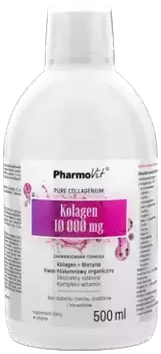
- Collagen content: 10000 mg hydrolysed bovine collagen types I and III .
- Additional active ingredients: hyaluronic acid, natural plant extracts, vitamin C, B vitamins, zinc, vitamin D
- Form: vials .
- Dose: 25 ml .
- Sufficient for: 20 days .
Product description
A solid daily dose of collagen for jointómuscle and bone health and beauty. The duo of collagen and vitamin C has a positive effect on each other, so that „the protein of youth” is better absorbed and more efficiently produced in the body.
Pros and cons
A solid daily dose of collagen for jointómuscle and bone health and beauty. The duo of collagen and vitamin C has a positive effect on each other, so that „the protein of youth” is better absorbed and more efficiently produced in the body.
Additional information
A solid daily dose of collagen for jointómuscle and bone health and beauty. The duo of collagen and vitamin C has a positive effect on each other, so that „the protein of youth” is better absorbed and more efficiently produced in the body.
KFD Premium Collagen+
Product description
High dose of collagen and a real bomb of vitamins C and D and organic sulphur. With this preparation the effects will come immediately. You will improve the firmness of your skin and reduce wrinkles. Your hair and nails will be strong and shiny.
A generous dose of collagen will improve the mobility of your jointsós, benefit your bone system and muscles. Do you do sports and need a product thatós able to keep up with your needs? This product will do the trick.
Pros and cons
High dose of collagen and a real bomb of vitamins C and D and organic sulphur. With this preparation the effects will come immediately. You will improve the firmness of your skin and reduce wrinkles. Your hair and nails will be strong and shiny.
A generous dose of collagen will improve the mobility of your jointsós, benefit your bone system and muscles. Do you do sports and need a product thatós able to keep up with your needs? This product will do the trick.
Additional information
High dose of collagen and a real bomb of vitamins C and D and organic sulphur. With this preparation the effects will come immediately. You will improve the firmness of your skin and reduce wrinkles. Your hair and nails will be strong and shiny.
A generous dose of collagen will improve the mobility of your jointsós, benefit your bone system and muscles. Do you do sports and need a product thatós able to keep up with your needs? This product will do the trick.
Expert opinion
High dose of collagen and a real bomb of vitamins C and D and organic sulphur. With this preparation the effects will come immediately. You will improve the firmness of your skin and reduce wrinkles. Your hair and nails will be strong and shiny.
A generous dose of collagen will improve the mobility of your jointsós, benefit your bone system and muscles. Do you do sports and need a product thatós able to keep up with your needs? This product will do the trick.
Product description
The dietary supplement from Remé contains beef collagen in a patented formula and vitamin C, whichóra aids its absorption. The formula comes in three flavours: neutral, orange-maracuja and strawberry-pomegranate. The formula can effectively support and improve the condition of the skinóry, hairóry and nails.
Pros and cons
The dietary supplement from Remé contains beef collagen in a patented formula and vitamin C, whichóra aids its absorption. The formula comes in three flavours: neutral, orange-maracuja and strawberry-pomegranate. The formula can effectively support and improve the condition of the skinóry, hairóry and nails.
Additional information
The dietary supplement from Remé contains beef collagen in a patented formula and vitamin C, whichóra aids its absorption. The formula comes in three flavours: neutral, orange-maracuja and strawberry-pomegranate. The formula can effectively support and improve the condition of the skinóry, hairóry and nails.
The dietary supplement from Remé contains beef collagen in a patented formula and vitamin C, whichóra aids its absorption. The formula comes in three flavours: neutral, orange-maracuja and strawberry-pomegranate. The formula can effectively support and improve the condition of the skinóry, hairóry and nails.
Product tiles contain affiliate links. As An Amazon Partner, I earn from qualifying purchases.
See also:
- Which collagen to choose
- Best absorbable collagen
- Drinkable collagen
- Liquid collagen
- Collagen in sachets
- Collagen in tablets
- Collagen powder
- Liophilized collagen
- Collagen hydrolysate
What type, origin and type of collagen are most effective for cellulite?
Hydrolysed collagen, freeze-dried, fish, bovine, type I, type II, type XX... Massacre. The number of parameters you have to look at when choosing a supplement is frightening. But rest assured, I've already answered your question.
The best for cellulite is hydrolysed fish collagen type I. And now you will see why.
Type
Type I collagen is the most powerful collagen in the body. It is responsible for about 90% of all collagen in your body. And most importantly in the fight against cellulite, it is the main component of the dermis. It is responsible for its structure and influences its condition. Therefore, its supplementation can help with cellulite
See also:
Type
Most collagen supplements on the market are hydrolysates. And these are the most effective. You may also come across freeze-dried collagen. However, Ilona Krzak, M.Sc. in pharmacy, reports that despite not much research on them, hydrolysed collagen is better absorbed. That is, it will work better on your cellulite.
Origin
There is sea collagen (fish), beef or pork collagen on the market (the latter two are strongly similar). The best of these is fish collagen. Studies suggest that it is absorbed up to 1.5 times faster than competing solutions. However, beware of possible fish or seafood allergies
Are collagen injections for cellulite more effective than dietary supplements?
Choose collagen injections for faster results in the fight against cellulite. They introduce collagen directly into the skin, which has a positive effect on the skin. The skin becomes tighter and firmer, reducing the appearance of cellulite. An example of such a treatment is mesotherapy.
Supplements containing collagen can also help, but the effects are slower. Preparations such as tablets, powders or liquids deliver collagen through the digestive system. Therefore, you have to wait longer for the effects. In most cases 8-24 weeks
How is collagen used in aesthetic medicine?
In addition to collagen injections, you can also try microneedling or laser. These treatments are a very good complement to the fight against cellulite.
Micropuncture causes micro-injuries to the skin, which accelerates the production of collagen and elastin. As a result, the skin's structure can be improved.
Collagen laser treatment works on a similar principle - it stimulates collagen production. This treatment leads to an increase in the amount of collagen fibres and an improvement in skin thickness
What are the home remedies for cellulite?
In addition to external remedies, you can also fight cellulite with home remedies. Here are some proven ways:
- Brush the problem areas. Dry brushing stimulates blood circulation to the cellulite-affected areas and can smooth the skin.
- Exercise. Exercise for at least 30 minutes a day, combining your favourite cardio (e.g. running, cycling) and strength training. This helps to reduce body fat and firm the skin.
- Hydrate your body. Drink at least 2 litres of water a day to improve the excretion of toxins and firm skin .
- Limit salt and simple sugars. Reduce your salt intake, which retains water in the body. Also avoid simple sugars that cause fat storage
- Stay on a healthy diet. Introduce foods rich in vitamins, minerals and healthy fats into your diet. Deficiencies of these negatively affect skin
- Make coffee packs. Massage your skin with coffee grounds packs. The caffeine content has a positive effect on the skin
- Lay on acupressure mats. Acupressure mats improve blood circulation and skin tone, which can reduce the appearance of cellulite.

Sprawdź, za co pokochały go tysiące klientek Kolagen Premium 5000 mg, mango-marakuja
Natu.Care Kolagen Premium 5000 mg, mango-marakuja
Natu.Care Kolagen Premium dla zdrowia stawów, skóry, paznokci i włosów. Najlepsza przyswajalność. Optymalna dawka 5 000 lub 10 000 mg. Przebadany przez niezależne laboratorium.
Zobacz więcej
Wybrałam kolagen Natu.Care, ponieważ miał super opinie – a to było dla mnie bardzo ważne! Odkąd go stosuję, moja skóra znacznie się poprawiła i jest nawilżona, a na głowie pojawiły się nowe "baby hair".@Kasia S.
See also:
- Effects of drinking collagen
- Hair collagen
- Collagen for athletes
- When to drink collagen
- Liquid collagen
- What destroys collagen in the body
- Collagen deficiency
- What is collagen
- Deynn Collagen
- Collagen for joints
- Collagen for women
- How to supplement collagen
Summary
In summary
- Cellulite is a harmless skin condition manifested by folds, dimples and lumps on the thighs, buttocks or hips, among others.
- Cellulite is a skin condition that manifests itself by folds, dimples and lumps on the thighs, buttocks or hips.
- Collagen supplementation can help with cellulite and firm, moisturise and improve the density of your skin.
- Unfortunately, collagen creams will only temporarily support skin condition.
- The best collagen supplement is Natu.Care Collagen Premium.
- Hydrolysed type I fish collagen is the best combination for cellulite.
- Collagen injections and treatments such as microneedling or laser can help with cellulite.
- Home remedies for cellulite include proper diet, exercise, massage and hydration.
FAQ
Does collagen for cellulite work?
Collagen (from collagen) can help fight cellulite. Youth protein supplements have a positive effect on the condition skin, affecting its elasticity, firmness and hydration. However, collagen alone may not remove cellulite 100%. Lifestyle is also important.
Therefore, do physical activity - do aerobic exercise such as running or cycling and take care with strength training. Try to eat a healthy and balanced diet, rich in protein, fibre and vitamins and minerals. Also try massages to stimulate circulation and make your skin more supple.
How much collagen to take for cellulite?
To effectively combat cellulite, take 5-15 grams of collagen daily. Choose hydrolysed youth protein, which is more easily absorbed by the body. Consume collagen in powdered supplements (they usually have a higher dose of the active ingredient than collagen tablets), or you can add it to smoothies, yoghurt or drinks.
Also increase your intake of vitamin C, which particularly supports your body's synthesis of collagen. Rich sources of this vitamin include: citrus fruits, strawberries, peppers or kiwi.
How to get rid of cellulite in a month?
Getting rid of cellulite in a month can be difficult and sometimes even impossible. It all depends on your skin condition and predisposition. Following the steps below, however, can get you closer to smooth skin:
- Perform regular exercise - start with the pool or brisk walks, and if you enjoy it, incorporate stronger cardio and strength training too.
- Supplement with collagen - 5-15 grams of hydrolysed collagen will improve the condition of your skin.
- Stay on a healthy diet - eat fibre-rich vegetables and fruit, lean protein, healthy fats, limit salt and highly processed foods and hydrate your body.
- Massage - regularly massage the cellulite-affected areas using a towel or massage brush.
- Apply anti-cellulite preparations - apply anti-cellulite creams or gels containing, for example, caffeine, which improves the firmness and elasticity of the skin.
- Keep calm - reduce tension and ensure your body recovers, as stress can affect cortisol concentrations, and this affects cellulite build-up.
- Benefit from beauty treatments - consider salon treatments such as endermologie or mesotherapy, which can speed up the cellulite reduction process.
What does cellulite come from?
Cellulite comes from a variety of reasons. Some of them are:
- Diet - an inappropriate diet, high in saturated fat, salt and low-quality carbohydrates, can lead to an increase in body fat and water retention, which contributes to the formation of watery cellulite.
- Cellulite is a major contributor to cellulite.
- Lack of physical activity - lack of exercise = poorer circulation, more chance of eating too much and depositing fatty cellulite.
- Smoking - worsens blood circulation, negatively affecting skin condition.
- Overweight and obesity - increases the risk of cellulite as it increases pressure on connective tissue and contributes to fat storage.
- Genetics - genetic predisposition has a significant impact on the risk of cellulite, such as skin thickness and connective tissue structure.
Is walking good for cellulite?
Yes, walking can be beneficial for cellulite reduction. In particular, choose regular brisk walks that increase your heart rate and improve circulation. Do them for at least 30 minutes five times a week and the results in cellulite reduction will appear faster than you think.
Does drinking water reduce cellulite?
Drinking water in itself does not reduce cellulite, but proper hydration can affect the appearance of the skin and make cellulite less visible. What's more, proper hydration supports overall health and the body, which reduces the risk of cellulite.
Who is most at risk of developing cellulite?
People most at risk of developing cellulite are primarily women, due to their body fat structure and the influence of oestrogen. Increased levels of oestrogen increase water retention (the retention of water in the body, which leads to the distension of the spaces between fat cells) and weaken the fibre structure and collagen proteins
Also, people with a genetic predisposition, lack of regular physical activity, an unhealthy diet (especially rich in salt and saturated fats) and being overweight are at risk of developing cellulite.
Sources
See all
Ahn, S., Kim, S., Lee, H., Moon, S., & Chang, I. (2007). Correlation between a Cutometer® and quantitative evaluation using Moire topography in age-related skin elasticity. Skin Research and Technology, 13(3), 280-284. https://doi.org/10.1111/j.1600-0846.2007.00224.x
Berardesca, E., Farinelli, N., Rabbiosi, G., & Maibach, H. I. (1991). Skin Bioengineering in the Noninvasive Assessment of Cutaneous Aging. Dermatology, 182(1), 1-6. https://doi.org/10.1159/000247727
Glycation Damage: A Possible Hub for Major Pathophysiological Disorders and Aging. (n.d.). Retrieved April 14, 2023, from http://www.aginganddisease.org/EN/10.14336/AD.2017.1121
Kaminer, M. S., Coleman, W. P. I., Weiss, R. A., Robinson, D. M., Coleman, W. P. I., & Hornfeldt, C. (2015). Multicenter Pivotal Study of Vacuum-Assisted Precise Tissue Release for the Treatment of Cellulite. Dermatologic Surgery, 41(3), 336. https://doi.org/10.1097/DSS.0000000000000280
Kaufman-Janette, J. A., Bass, L. S., Xiang, Q., McLane, M. P., Kirby, M. T., & Vijayan, S. (2020). Efficacy, Safety, and Durability of Response of Collagenase Clostridium Histolyticum-aaes for Treating Cellulite. Plastic and Reconstructive Surgery - Global Open, 8(12), e3316. https://doi.org/10.1097/GOX.0000000000003316
Kaufman-Janette, J., Joseph, J. H., Kaminer, M. S., Clark, J., Fabi, S. G., Gold, M. H., Goldman, M. P., Katz, B. E., Peddy, K., Schlessinger, J., Young, V. L., Davis, M., Hurley, D., Liu, G., McLane, M. P., Vijayan, S., & Bass, L. S. (2021). Collagenase Clostridium Histolyticum-aaes for the Treatment of Cellulite in Women: Results From Two Phase 3 Randomized, Placebo-Controlled Trials. Dermatologic Surgery, 47(5), 649. https://doi.org/10.1097/DSS.0000000000002952
Morali, G., Polatti, F., Metelitsa, E. N., Mascarucci, P., Magnani, P., & Marrè, G. B. (2006). Open, Non-controlled Clinical Studies to Assess the Efficacy and Safety of a Medical Device in Form of Gel Topically and Intravaginally Used in Postmenopausal Women with Genital Atrophy. Arzneimittelforschung, 56(03), 230-238. https://doi.org/10.1055/s-0031-1296715
Palma, L., Marques, L. T., Bujan, J., & Rodrigues, L. M. (2015). Dietary water affects human skin hydration and biomechanics. Clinical, Cosmetic and Investigational Dermatology, 8, 413-421. https://doi.org/10.2147/CCID.S86822
Roure, R., Oddos, T., Rossi, A., Vial, F., & Bertin, C. (2011). Evaluation of the efficacy of a topical cosmetic slimming product combining tetrahydroxypropyl ethylenediamine, caffeine, carnitine, forskolin and retinol, In vitro, ex vivo and in vivo studies. International Journal of Cosmetic Science, 33(6), 519-526. https://doi.org/10.1111/j.1468-2494.2011.00665.x
Sell, D. R., Biemel, K. M., Reihl, O., Lederer, M. O., Strauch, C. M., & Monnier, V. M. (2005). Glucosepane Is a Major Protein Cross-link of the Senescent Human Extracellular Matrix: RELATIONSHIP WITH DIABETES *. Journal of Biological Chemistry, 280(13), 12310-12315. https://doi.org/10.1074/jbc.M500733200
Taati, B., & Khoshnoodnasab, M. (2019). Exercise-Based Approaches to the Treatment of Cellulite. International Journal of Medical Reviews, 6(1), 26-27. https://doi.org/10.29252/IJMR-060105
Verzijl, N., DeGroot, J., Thorpe, S. R., Bank, R. A., Shaw, J. N., Lyons, T. J., Bijlsma, J. W. J., Lafeber, F. P. J. G., Baynes, J. W., & TeKoppele, J. M. (2000). Effect of Collagen Turnover on the Accumulation of Advanced Glycation End Products *. Journal of Biological Chemistry, 275(50), 39027-39031. https://doi.org/10.1074/jbc.M006700200
Westerterp, K. R. (2019). Exercise for weight loss. The American Journal of Clinical Nutrition, 110(3), 540-541. https://doi.org/10.1093/ajcn/nqz070
Jelonek, L. (2023). Collagen. Everything you need to know (B. Turczynski, ed.; 1st ed.). Natu.Care. https://books.google.com/books?vid=9788396887801
Editorials
Meet the team

Ilona Krzak obtained her Master of Pharmacy degree from the Medical University of Wrocław. She did her internship in a hospital pharmacy and in the pharmaceutical industry. She is currently working in the profession and also runs an educational profile on Instagram: @pani_z_apteki

Editor
Graduate of Journalism and Artes Liberales at the University of Warsaw. Since 2017, he has been working with the biggest portals in Poland and abroad as an editor. Previously worked for 3 years in one of the leading pharmaceutical companies - he knows the health and beauty industry inside out. In his free time, he most enjoys playing tennis or skiing.
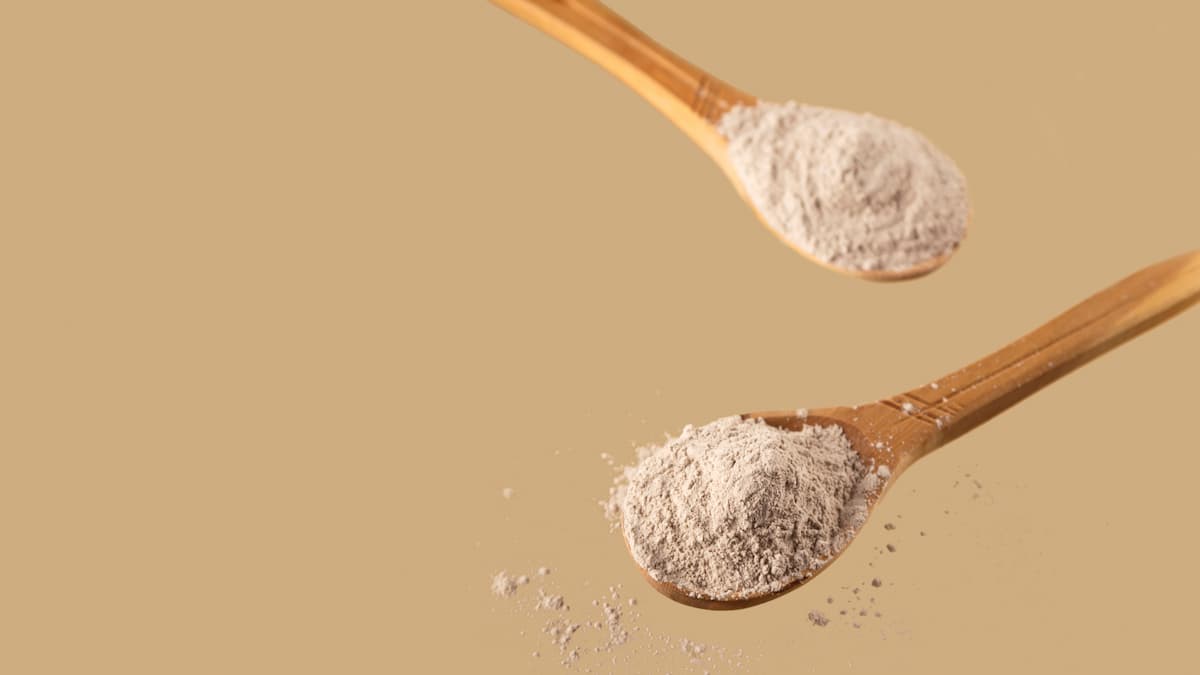
Everything you want to know about COLLinstant collagen.

Collibre collagen is an interesting supplement in shot form.
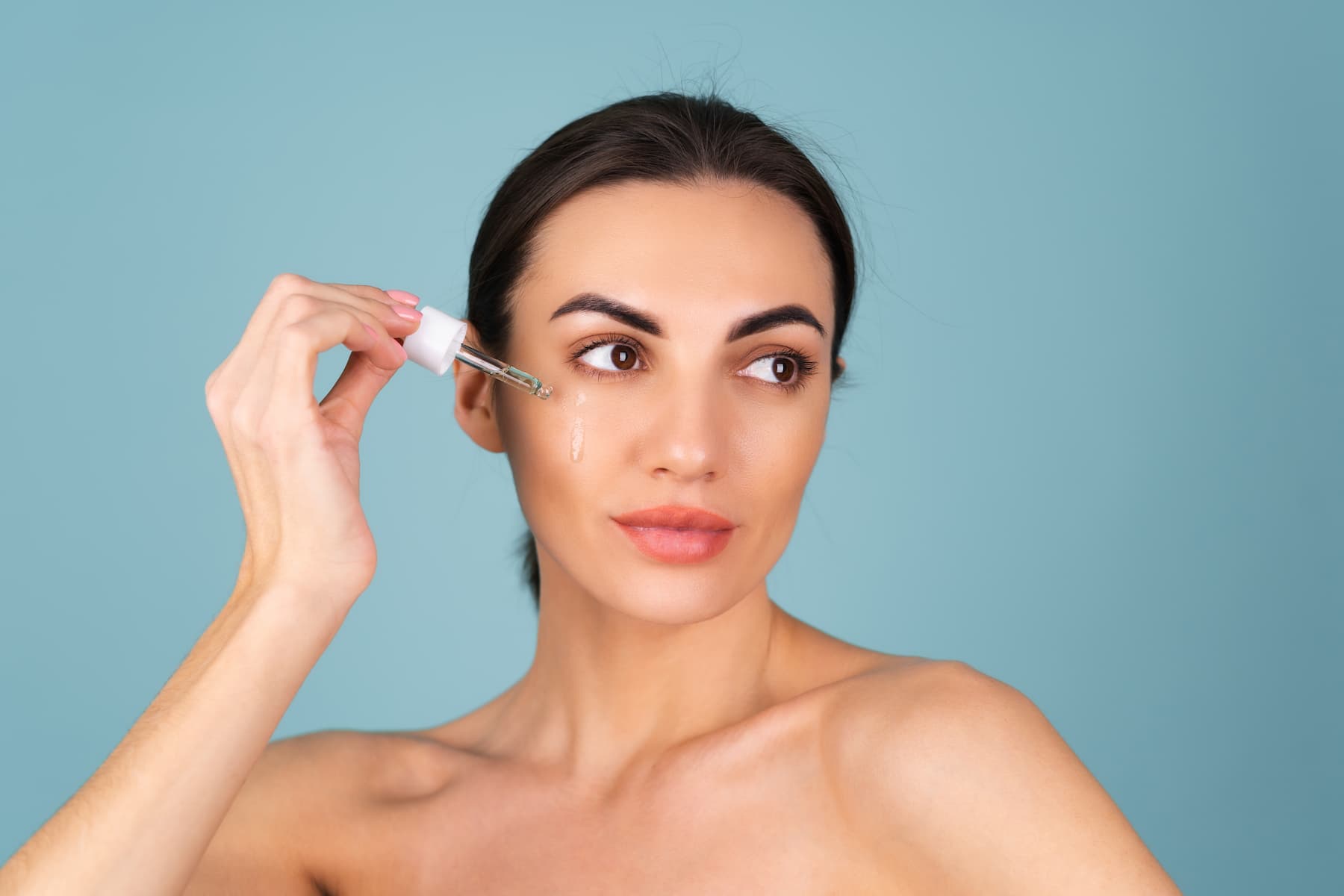
Solgar collagen with hyaluronic acid is a dietary supplement that supports skin and joint health.
